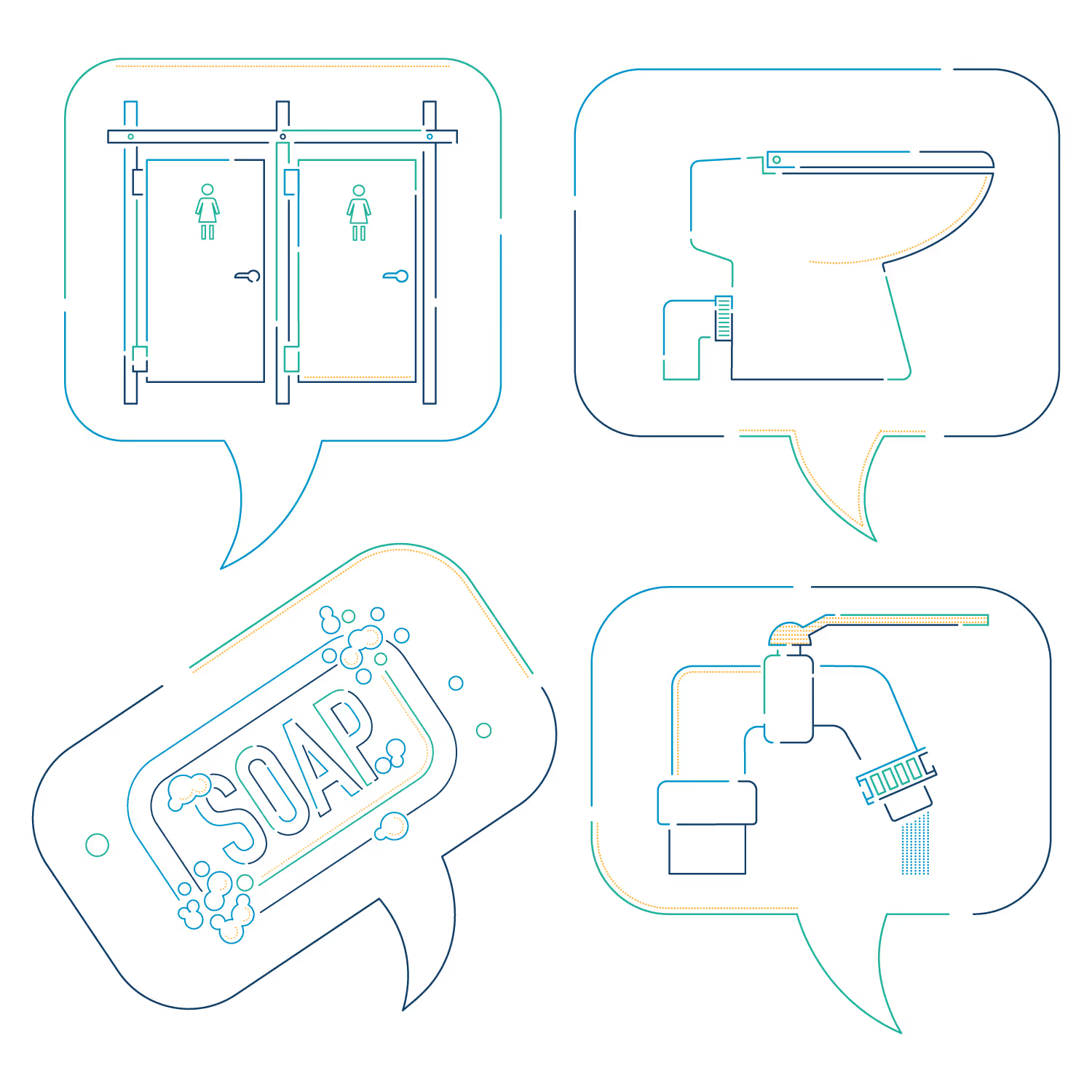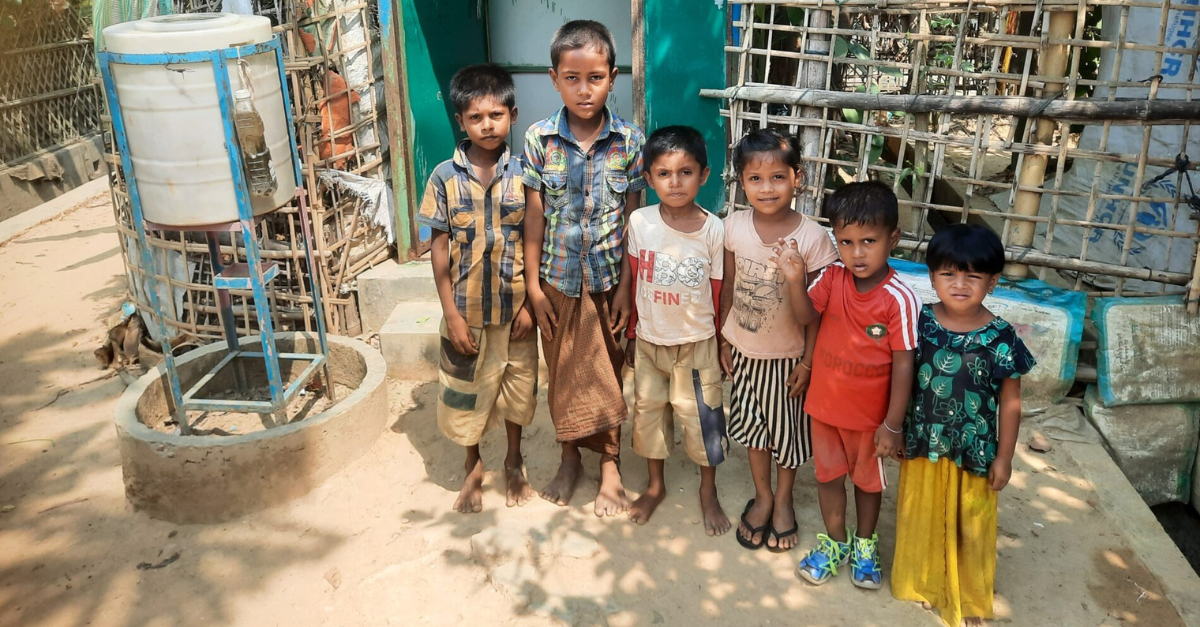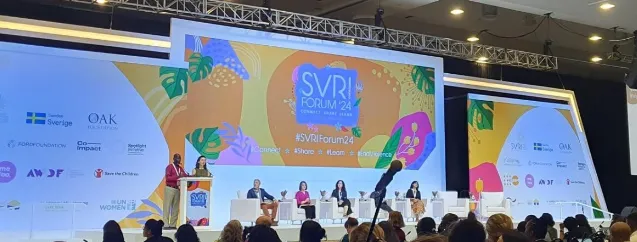Putting users at the heart of emergency sanitation design


NEW_LINENEW_LINEHow can we increase the use of latrines in rapid-onset emergencies? How can we ensure that all affected people have access to latrines? And how can we sustain this until better, household level facilities have been set up months, or years, later?NEW_LINENEW_LINEThe answer is straightforward: provide sanitation facilities that people can and want to use. Provide facilities that are safe and accessible, for men as well as for women, children and people with disabilities. Design sanitation facilities that provide privacy and dignity.NEW_LINENEW_LINEThe problem, however, is that this is easier said than done. Emergencies usually bring together large numbers of people into one place, and humanitarian agencies often struggle to build sanitation that meets their wide variety of needs, preferences and practices.NEW_LINENEW_LINEMany community engagement approaches provide rich data on the demographic, cultural, religious and economic backgrounds of affected people; but few of them focus on gathering details that can inform the provision of adequate sanitation. Even fewer approaches are useful when humanitarian agencies and WASH engineers have only a few weeks (usually up to 12 weeks) at the onset of an emergency to get sanitation facilities in place.NEW_LINENEW_LINEEven after insights are gathered, there is the additional challenge of making sure that these are translated into reliable and actionable information for humanitarian and sanitation practitioners, and that they ultimately lead to suitable sanitation facilities for the community. If this information is lost or cannot be effectively used by decision-makers, the process of community engagement becomes redundant, or even detrimental to those involved.NEW_LINENEW_LINEBut, however daunting all of this might sound, it is crucial that the humanitarian sector improves its ability to put affected people’s views, concerns and values at the very heart of how humanitarian response is delivered - sanitation being only one example.NEW_LINENEW_LINEInnovation approaches can help us to tackle this complex and difficult challenge. By borrowing from the commercial sector’s ‘design thinking’ processes to create more ‘human’ or ‘user’ -centred solutions, we can explore new tools for rapidly understanding how to make sanitation facilities more appropriate for the people using them, t. User-centred design puts the user’s experience, not the product or hardware first, from the very beginning - when those first latrines are built after an emergency. The process still takes into account factors such as supply chain, timeline and budget, but it changes the way decisions are made.NEW_LINENEW_LINEIn February, the HIF launched its first challenge focused on bringing user-centred design closer to humanitarian practice. Five projects are going to pilot new approaches to rapid community engagement to inform the design of sanitation facilities in rapid-onset emergencies. If successful, these approaches would not only strive to improve the provision of sanitation in emergencies, but could also support a more user-centred approach to decision-making in humanitarian contexts.NEW_LINENEW_LINERead more about the HIF’s WASH Challenges and apply now:NEW_LINE
- NEW_LINE
- User-driven sanitation design through rapid community engagement NEW_LINE
- Developing and disseminating guidance on faecal sludge disposal sites in emergencies NEW_LINE
NEW_LINE Written by Cecilie Hestbaek, Innovation Management Adviser at the HIF and Ana Florescu, Lead Researcher at Science Practice, a design and research company. Science Practice and HIF have worked closely together in developing a number of WASH Challenges. All of HIF’s WASH Challenges are based on our Gap Analysis as well as extensive analysis and consultation with our WASH Technical Working Group.NEW_LINENEW_LINE
Stay updated
Sign up for our newsletter to receive regular updates on resources, news, and insights like this. Don’t miss out on important information that can help you stay informed and engaged.
Related articles



Explore Elrha
Learn more about our mission, the organisations we support, and the resources we provide to drive research and innovation in humanitarian response.